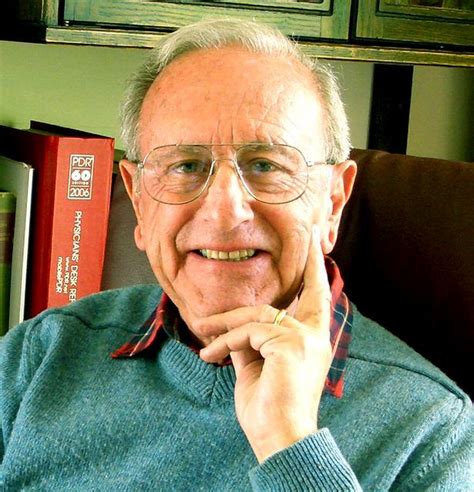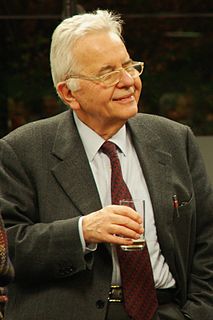A Quote by Woodrow Wilson
The method of political science is the interpretation of life; its instrument is insight, a nice understanding of subtle, unformulated conditions.
Related Quotes
The first proponent of cortical memory networks on a major scale was neither a neuroscientist nor a computer scientist but .. a Viennes economist: Friedrich von Hayek (1899-1992). A man of exceptionally broad knowledge and profound insight into the operation of complex systems, Hayek applied such insight with remarkable success to economics (Nobel Prize, 1974), sociology, political science, jurisprudence, evolutionary theory, psychology, and brain science (Hayek, 1952).
When people think science and cooking, they have no idea that it's not correctly expressed. We're actually applying the scientific method. People think chemistry and physics are science, but the scientific method is something else.... It's the science that the world of cooking generates: science of butter; science of the croissant.
Science is a way of getting knowledge. It's a method. It's a method that really relies on making mistakes. We propose ideas, they are usually wrong, and we test them against the data. Scientists do this in a formal way. It's a way that everyone can go through life; that's how we should be teaching science from a very young age.
The popular books are the novels, dealing with life under all possible conditions, and they are widely read not only because they are entertaining, but also because they in a measure satisfy an unformulated belief that to see farther, to know all sorts of men, in an indefinite way, is a preparation for better social adjustment--for the remedying of social ills.
Science is nothing more than a method of inquiry. The method says an assertion is valid - and will be universally accepted - only if it can be reproduced by others, and thereby independently verified. The impersonal rigor of the method has produced enormously powerful results for 400 years. The scientific method is utterly apolitical. A truth in science is verifiable whether you are black or white, male or female, old or young. It’s verifiable whether you know the experimenter, or whether you don’t.
A man develops a subtle power as a result of the strict observance of celibacy for twelve years. Then he can understand and grasp very subtle things which otherwise elude his intellect. Through that understanding the aspirant can have direct vision of God. That pure understanding alone enables him to realize Truth.
Philosophers of science constantly discuss theories and representation of reality, but say almost nothing about experiment, technology, or the use of knowledge to alter the world. This is odd, because 'experimental method' used to be just another name for scientific method.... I hope [to] initiate a Back-to-Bacon movement, in which we attend more seriously to experimental science. Experimentation has a life of its own.

































